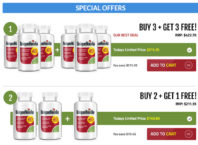WARNING: Look closely at a high cholesterol diet and re-evaluate it based on the amount of fat it contains. Lower your fat intake overall and you’ll probably notice you are not eating foods high in cholesterol, either. This is the best way to avoid letting your diet affect your blood cholesterol.
If you’ve been diagnosed with high cholesterol, you’re probably trying to modify your existing diet to lower your cholesterol. You might be surprised to learn that a high cholesterol diet is not necessarily the culprit behind your high serum lipid levels.
Let’s talk about cholesterol first, and then we’ll get into the effects of a high cholesterol diet. What is cholesterol? Cholesterol is a fatlike substance that is synthesized by the body. That’s right! We make it in our bodies. Only animal products contain cholesterol. If it didn’t have a liver, it doesn’t have cholesterol! As a matter of fact, I get a kick out of food labels that tout “No Cholesterol” as a marketing tool when the food item never had a chance of having cholesterol in the first place. I know what you’re thinking. Some items have cholesterol and it doesn’t appear to be an animal product. This is simply because they used animal fat to produce the product.
Cholesterol is used in the body as a structural component of cell membranes and in the synthesis of some hormones as well as Vitamin D. Doesn’t seem so bad, right? Wrong. The problem is that when cholesterol is being transported in the blood stream, it tends to stick to the walls of arteries which of course, isn’t a good thing. When there’s a high amount of cholesterol in the body, this is far more prevalent. So, does a high cholesterol diet raise the level of cholesterol in the body?
Yes and no. There, how’s that for fence-sitting! Seriously, the actual cholesterol component in a high cholesterol diet doesn’t necessarily raise blood levels of cholesterol. More importantly is the fat that is usually in the high cholesterol items. Remember how I told you that cholesterol is only in animal products? Well, animal products such as steak contain a lot of fat. In addition, foods that are not even high in cholesterol and are high in fat are generally what need to be eliminated when trying to lower high cholesterol levels.
The fat that we’re talking about here is that nasty old saturated fat. It has been well documented that high levels of saturated fat in a person’s diet raise total cholesterol levels and more importantly, LDL (the bad one). Saturated fat is found in fatty meats, greasy, salty snacks and most baked goods as well as other high fat foods. A high cholesterol diet may or may not contain high saturated fatty acids.
In addition, diets high in fat are often consumed by people who are overweight. People who are overweight tend to not exercise (not that all overweight people don’t exercise). Carrying extra weight and not exercising contribute to increased blood cholesterol. So, you can see there are a lot of contributing factors to high cholesterol than simply a high cholesterol diet.
More importantly than worrying about a high cholesterol diet, your diet will be lower in cholesterol naturally if you lower your fat intake. Keep your fat intake less than 30% of your daily intake. If you’ve been diagnosed with high cholesterol, go for less than 25% of total calories. Watch saturated fat intake closely. Work towards getting your fat intake from healthier sources such as fish and oils like canola oil.
There’s also a significant portion of people with high cholesterol that don’t follow a high cholesterol diet, do not consume high amounts of fat and do exercise regularly. These people are merely genetically predisposed to having high cholesterol. Though they may achieve some lowering of cholesterol through increasing their efforts at exercise and adding foods known for lowering cholesterol, they will probably still need a medication.






